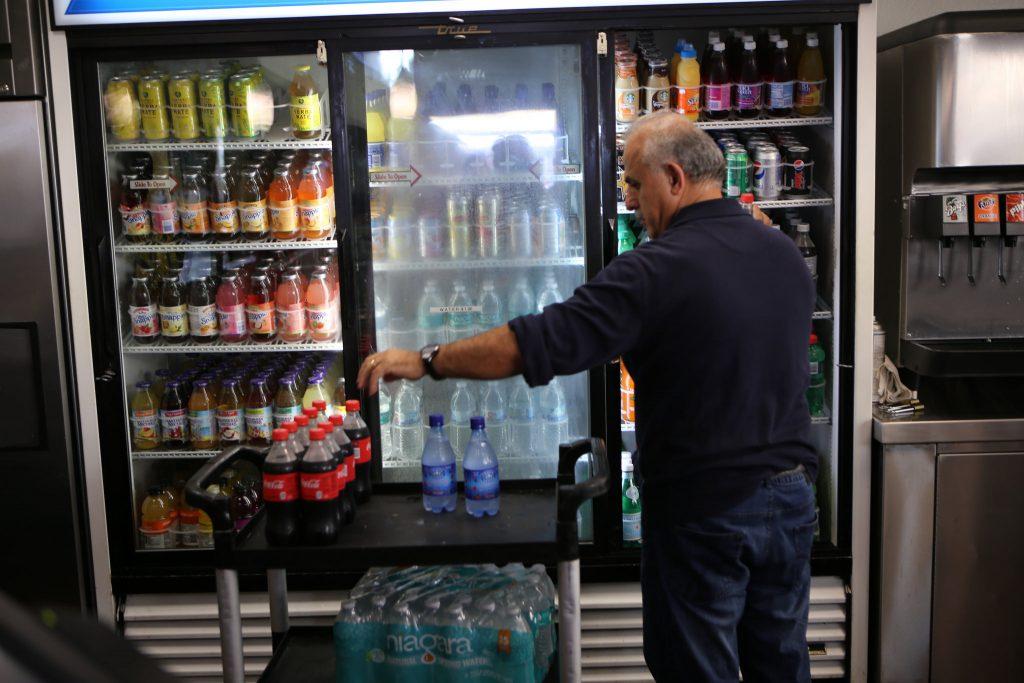Members of environmental student groups at SF State said they are growing frustrated as the school moves forward with a pouring rights agreement, seeking a deal in which a major soda brand will represent 80 percent of all vendors on campus.
“The way that President (Leslie E.) Wong has been going about this contract is very controversial, very (non-)transparent and secretive and not inclusive in any way whatsoever,” said An Bui, president of the Real Food Challenge at SF State. “The pouring rights issue is an issue in itself, but this is also a reflection of a larger issue in lack of shared governance.”
Bui, 19, said that the RFC is against a possible pouring rights contract at SF State because it would infringe on the campus community and limit students’ healthy beverage choices.

“There is going to be advertising across campus, and that’s a private company coming into a public institution and having advertising,” Bui said. “And the options will be limited in terms of healthy choices.”
According to Jonathan Morales, who is a member of the pouring rights committee and the director of news and new media at SF State, the University would benefit in several ways from adopting a pouring rights agreement.
“Right now, many of the beverages that would be covered by a pouring rights agreement are already on campus, but are not regulated,” Morales said in an email. “That means the University not only receives no direct benefit from their sale, but also has no control over things like the ratio of healthy beverage options to sugary beverages or sustainability practices.”
SF State’s proposed pouring rights agreement would last for 8-10 years and entail a one-time donation of at least $2 million from the chosen company, according to the official request for proposals. An additional fee of $125,000 would also be collected annually by SF State.
Celia Lobuono Gonzalez, a member of the Real Food Challenge, said that the majority of this funding would go to the athletics department. Information on how exactly the funds would be distributed cannot be released at this time because it is part of the confidential negotiations, Morales said.

The committee is still reviewing proposals and the agreement, which are currently confidential, according to Morales. However, the committee has decided to host a town hall meeting in the near future, Morales said, where students will be given a platform to ask questions of the contenders and voice their concerns.
Morales said students will be informed of details within two or three weeks, when the committee will reveal the identity of the proposed companies and announce a date for the town hall meeting.
Gonzales said the proposed town hall meeting is not enough and that members of the community need to contribute to the agreement.
“When you see what this town hall meeting is about, it’s not going to be about whether students want this or not,” Gonzalez said. “It’s going to be ‘A or B?’ like, ‘we’re doing this.’ It’s really an issue of shared governance.”
The Environmentally Concerned Organization of Students does not support pouring rights at SF State for several reasons, including health and waste issues, according to Liana Derus, ECO Students co-president and treasurer.
According to Morales, many other CSUs have pouring rights agreements in place. Elizabeth Chapin, public affairs web communications specialist at the CSU Office of the Chancellor, said that the CSU has no system-wide policy for selling pouring rights and doesn’t keep track of individual universities’ agreements.
Gonzalez said she thinks SF State should be representative of the larger community and therefore not support large corporations.
“Our own city supervisors have, just this summer, enacted a city ordinance to put warning labels on all sugary beverage advertisement,” Gonzalez said. “We are still part of the larger community, so it hurts, it really hurts, and I feel, we feel, that this goes against the strategic plan, the goals, the identity that SF State says it’s about.”





